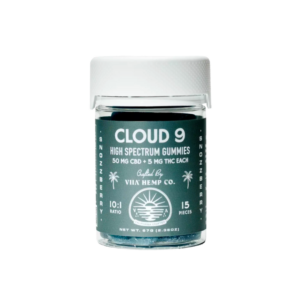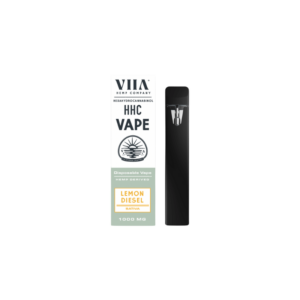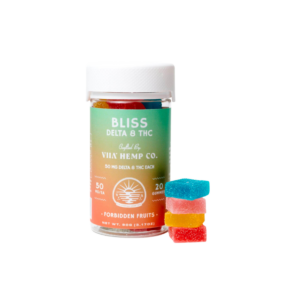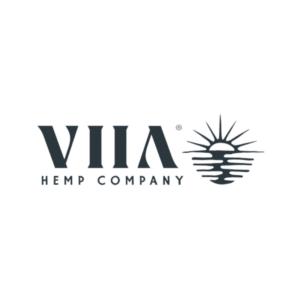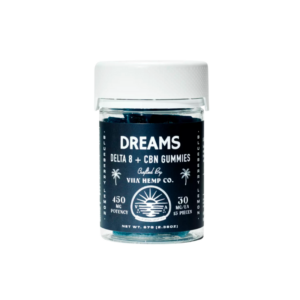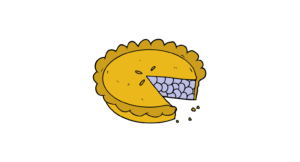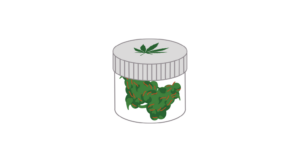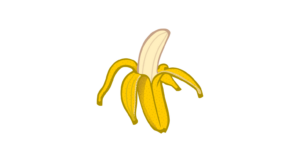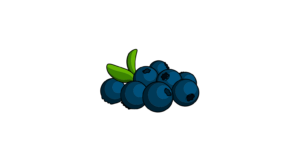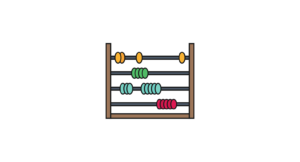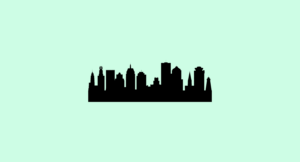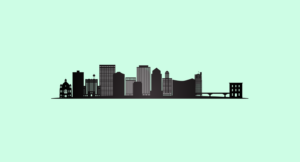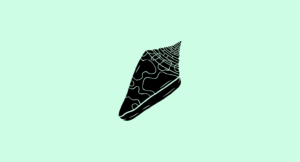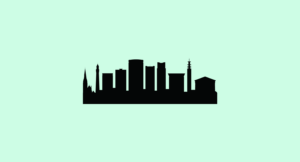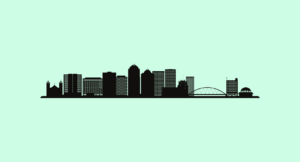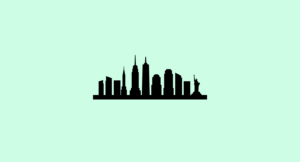Where to Buy CBD & Delta 8 THC in Denver, Colorado
Denver is the biggest city in Colorado, with a population of 727,211 people.
In the state of Colorado, CBD, delta 8 THC, medical marijuana, and recreational marijuana are legal.
Recent legislation changes have also decriminalized the psychedelic compound psilocybin (found in psychedelic mushrooms) in the city of Denver. People may possess and consume it in the city, but it’s still illegal to supply the psychedelic.
In this article, we will look at the laws surrounding CBD, delta 8 THC, psilocybin, as well as medical and recreational marijuana.
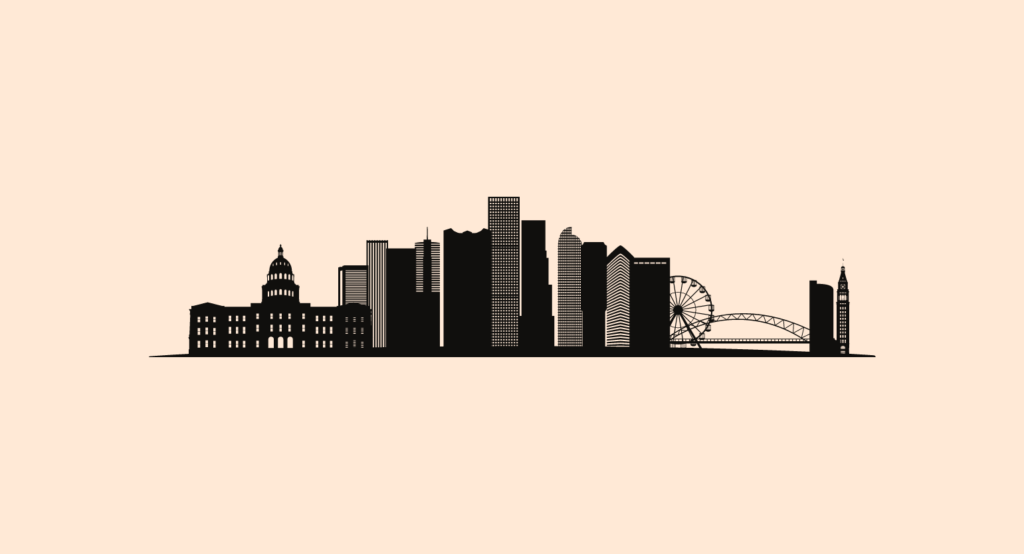
Is CBD Legal in Denver?
CBD is 100% legal in the entire state of Colorado.
The 2018 Farm Bill states that the sale and consumption of hemp-derived CBD is legal as long as it contains no more than 0.3% THC.
Hemp-derived CBD with less than 0.3% THC is available to buy over the counter in certain stores and is accessible online. CBD derived from industrial hemp is legal under state and federal law.
Cannabis-derived CBD extract with more than 0.3% THC is also legal for medical and recreational use in Denver but can only be purchased from licensed dispensaries. CBD derived from marijuana is legal under Colorado state law but illegal under federal law.
There are some state regulations that affect the distribution of CBD products in Denver. It’s important you abide by these regulations to stay within the law.
Up until 2017, the sale of CBD produced outside of Colorado was illegal in Denver. The law was put in place as a concern for the quality of consumable products sold within the city and state of Colorado.
In August 2017, the government amended the regulations making the sale of CBD from outside of Colorado legal if certain terms are met.
CBD manufacturers must meet strict requirements and abide by the Colorado Wholesale Manufacturing Food Regulations. This makes it legal for manufacturers based outside of Colorado to sell CBD in Denver as long as they meet the requirements set by the state.
If you’re purchasing CBD online in Denver, it’s essential that you make sure the company in question has approval from the state to sell their consumable products in the city and surrounding state.
Find CBD Nearby | Select Your State
Is Marijuana Legal In Denver?
Marijuana is legal for both medical and recreational use in Denver.
Cannabis for medical use has been legal in the state since 2000 and was also made legal for recreational use in 2012.
Residents of Colorado can purchase and possess up to one ounce of marijuana. Non-residents can possess marijuana but are limited to a quarter of an ounce.
Prices range from $9 per gram for low-quality flower up to $14 per gram for premium-quality flower.
Residents of Colorado that live in Denver are allowed to grow marijuana at home for personal use. People over the age of 21 are allowed to grow up to six plants providing only three are put into flower at one time.
The city of Denver limits each household to 12 marijuana plants, even if there are multiple people living in the house. This means if there are two people in the household, they can have 6 plants each and no more than 6 in flower at one time.
You must be over 21 years of age to buy recreational marijuana in Denver. A government-issued ID will be requested as proof-of-age upon purchase at any licensed dispensary.
People from the age of 18 to 21 can also buy marijuana in Denver. However, they must possess a valid medical marijuana card. It’s also possible for minors under the age of 18 to obtain medical marijuana for serious health issues.
To obtain a medical card for marijuana in Denver, you must first see your healthcare provider. If they feel medical marijuana will benefit your health condition, they will write you a provider certification.
For minor patients under the age of 18, two certificates must be obtained to apply for a medical marijuana card. The certifications must come from two physicians or mental health providers that aren’t the child’s primary healthcare specialists.
Once you have obtained the necessary certification from a healthcare specialist, the application can be submitted online to the Colorado Department of Public Health & Environment (CDPHE).
A $25 processing fee will need to be included in the application. This can be paid by card or check.
Applications are usually approved within three business days. Once approved, the card is accessible through your online account, where it can be printed or displayed on a mobile phone.
Is Delta 8 THC Legal in Denver?
Delta 8 THC is a cannabinoid that shares some similarities with delta 9 THC. It’s psychoactive but not as intense as delta 9 THC.
The cannabinoid has been in a legal loophole because technically, delta 9 THC is the controlled compound found in cannabis. However, only hemp-derived delta 8 THC is legal under federal law.
In Denver, both hemp-derived and cannabis-derived delta 8 THC are legal under state law. Hemp-derived delta 8 THC can be accessed over the counter in certain stores and online. Cannabis-derived delta 8 THC can be purchased at licensed dispensaries.
Are Psychedelics Legal in Denver?
Most psychedelics are illegal under federal law. They are also illegal under state laws across most of America.
However, Denver has decriminalized psilocybin — the hallucinogenic compound found in psychedelic mushrooms.
Decriminalization doesn’t make magic mushrooms legal in Denver, though. Criminal penalties on people over the age of 21 that possess and consume psilocybin (within reason) have been greatly relaxed.
Because of the decriminalization of psilocybin, it’s unlikely that you’ll get charged if you have mushrooms for personal use on you or grow them for your own consumption.
However, the sale of psilocybin mushrooms is still prohibited, so you won’t find them at your local dispensary yet.
List of Dispensaries in Denver
1. Denver Dispensary
Denver Dispensary sells medical and recreational marijuana.
They offer a wide range of cannabis flower, concentrates, and edibles. The staff here are happy to help and advise you on the best marijuana for your recreational and medical needs.
2. Denver Recreational Dispensary (DENREC)
DENREC currently has three dispensary locations in Denver. Two distribute recreational marijuana only, and one sells medical and recreational products.
They offer smokable flower, edibles, concentrates, and topicals. With a total of 71 awards for the flower available on their menus, DENREC certainly has a good reputation.
3. Medicine Man Dispensary
Medicine Man offers a variety of marijuana products for recreational and medical customers.
They have a large selection of flower, concentrate, and edibles. All of their cannabis is grown by Medicine Man at farms located in Colorado. They pride themselves on quality and don’t sell any products that aren’t produced by them.
4. Kind Love Dispensaries
Kind Love Dispensaries have a location in Denver. They offer both medical and recreational marijuana.
You’ll find a wide range of cannabis strains at their Denver location, as well as concentrates, edibles, topicals, and vape products.
5. Altitude The Dispensary
Altitude The Dispensary has two locations in Denver. They offer recreational cannabis only.
They have a wide range of cannabis flower, concentrates, and edibles for sale in both of their Denver locations (East and West).
6. Lit Cannabis Dispensary
Lit Cannabis Dispensary has multiple locations in Denver. They have separate locations for medical and recreational marijuana, so be sure to double-check your location before heading over to one of their stores.
They have a wide range of flower, extracts, concentrates, and topicals available for both medical and recreational users.
How to Use CBD
CBD can be consumed in a number of ways. Below we have three popular ways to consume CBD.
1. CBD Oils & Tinctures
CBD oil is made by extracting cannabinoids from hemp or cannabis and mixing the extract with a carrier oil. CBD tinctures are made by dissolving active cannabinoids (including CBD) in high-proof alcohol.
Both CBD oils and tinctures are highly bioavailable, have a long shelf-life, and allow you to easily adjust the dose.
2. CBD Vape Pens
CBD vape pens use a heating element to vaporize CBD-infused vape liquid or distillate so it can be inhaled. Vape pens are an extremely portable, easy to use, and bioavailable way to consume CBD.
3. CBD Hemp Flower
CBD extract comes from the flowers of the hemp plant. Instead of consuming extract, the raw flower can be smoked, vaporized, or used in edibles. CBD hemp flower can also be used to make your own oils, tinctures, concentrates, and topicals.
Hemp vs. Marijuana: What’s The Difference?
Hemp and marijuana are the same species — Cannabis sativa. The different names define two genetic differences within the species.
The hemp plant contains the genes that promote THC production in its flowers, but they aren’t expressed. Cannabis is considered “hemp” if it produces less than 0.3% THC in the dried flower. Hemp is federally legal.
The difference with marijuana plants is that they do express these genes to produce THC — often in very high concentrations. Marijuana is considered any cannabis plant that contains more than 0.3% in the dried flower. Marijuana is federally illegal but legal in many states across the US.
Other Differences Between Hemp & Marijuana
- Hemp plants exist only in Cannabis sativa varieties
- Marijuana plants exist in both Cannabis sativa & Cannabis indica varieties
- Hemp plants can grow in climates around the world
- Marijuana plants tend to be more climate-sensitive
- Marijuana is psychoactive (gets you high)
- Hemp is non-psychoactive (doesn’t get you high)
- Marijuana contains more THC than CBD
- Hemp contains more CBD than THC
Full-Spectrum vs. CBD Isolate: What’s The Difference?
CBD is available in three different types of extract — CBD isolate, broad-spectrum CBD, and full-spectrum CBD.
1. Full-spectrum CBD contains all the cannabinoids and terpenes present in the hemp plant — including CBD. Full-spectrum extracts do contain THC at levels below 0.3. This small amount of THC isn’t enough to impair you, but it may show up on a drug test.
2. Broad-spectrum CBD contains all the cannabinoids and terpenes present in hemp — excluding THC. Broad-spectrum extracts will not impair you, and because they don’t have any THC, they won’t show up on drug tests either.
3. CBD isolate is a pure extract that contains only CBD. The other cannabinoids, terpenes, and phytochemicals naturally present in hemp are removed from the extract. CBD isolate doesn’t impair the user and doesn’t show up on drug tests.
Conclusion: Where to Buy CBD in Denver
CBD is widely available in Denver, Colorado.
It’s completely legal to buy and sell CBD in Denver. However, any CBD sold in the state must come from an approved supplier.
Medical and recreational cannabis is also legal to buy in Denver. State law allows residents to possess up to 1 ounce and non-residents to possess up to ¼ ounce.
Make sure you purchase CBD from a reputable company that is approved to sell in Colorado. If you’re looking to buy medical or recreational cannabis, ensure you go to a well-reviewed dispensary with informative staff.
